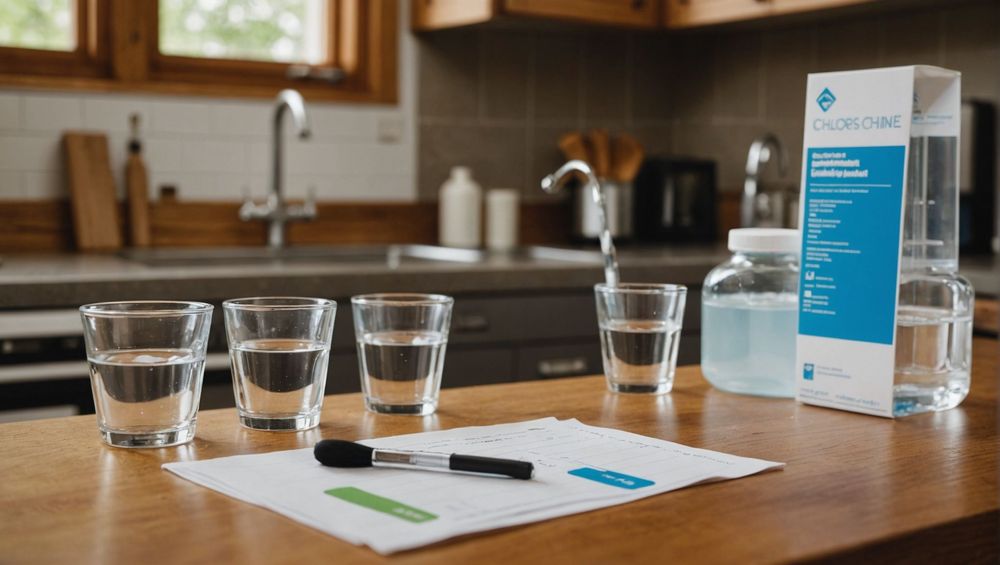Which Water Purifier Should You Buy?
Choosing the right water purifier can significantly impact your health and the quality of your drinking water. With numerous options available, it’s vital to determine which type meets your needs. Factors to consider include the source of your water supply, the contaminants present, and your budget constraints. This article will guide you through the various types of water purifiers available, their features, and what you should consider before making a purchase. By the end, you will have a clear understanding of which water purifier may be the best fit for you and your family.
Understanding Different Types of Water Purifiers

Water purifiers come in various types, each employing different technologies to remove contaminants from water. Understanding these types can help you decide which one is best suited for your specific needs:
- Reverse Osmosis (RO) Systems: These purifiers use a semi-permeable membrane to remove dissolved solids, contaminants, and impurities.
- Ultraviolet (UV) Purifiers: Leveraging ultraviolet light, this technology kills bacteria and viruses by disrupting their DNA.
- Activated Carbon Filters: These filters are excellent for removing chlorine, sediments, and volatile organic compounds (VOCs) but may not eliminate all contaminants.
- Gravity-Based Water Filters: These purifiers rely on gravity to filter water through a series of filters, typically made of ceramic or activated carbon.
- National Sanitation Foundation (NSF) Certified Purifiers: Look for models that have been certified for safety and performance by the NSF.
Factors to Consider Before Buying

When choosing a water purifier, several factors should be taken into account to ensure you make an informed decision. Each factor plays a crucial role in determining which purifier would best serve your household needs:
- Water Quality: Test your water source for common contaminants like chlorine, lead, and bacteria. This information will guide you towards a suitable purification method.
- Purification Technology: Depending on the contaminants present, you may require a specific technology, such as RO or UV. Research which technologies work best for your water quality.
- Storage Capacity: Consider how much purified water you need daily. Some purifiers come with storage tanks, while others provide unlimited supply on demand.
- Maintenance and Filter Replacement: Understand the frequency and cost of replacing filters in your selected purifier. Regular maintenance is essential for efficiency.
- Budget: Finally, set a budget. Water purifiers range from affordable to high-end models; knowing your price range will help narrow your options.
Essential Features to Look For
Besides the type of purifier and your specific needs, there are some essential features to keep in mind when shopping for a water purifier. These features can enhance the overall experience and efficiency of purification:
Multi-stage Filtration:
A system with multiple filtration stages can provide comprehensive purification by tackling various contaminants effectively.
LED Indicators:
Look for purifiers with LED indicators for filter replacement and system status. This feature simplifies maintenance and ensures you always have clean water.
Auto Shut-off:
Some purifiers come with an automatic shut-off feature that turns off the system when not in use, saving energy and ensuring safety.
Space Efficiency:
Consider the space you have available. Some purifiers are compact and can fit under the sink, while others are larger and best suited for countertops.
Affordability of Spare Parts:
Ensure that replacement parts and filters are readily available and affordable for long-term maintenance.
Conclusion
Ultimately, the water purifier you decide to buy depends upon your specific water needs, the contaminants present, and your overall budget and preferences. By understanding the types of purifiers, considering essential features, and evaluating water quality, you can make an educated choice. Investing in a suitable water purifier is vital for ensuring you and your family have access to clean and safe drinking water.
FAQs
1. How often should I replace the filters in my water purifier?
Typically, filters should be replaced every 6 to 12 months, but this can vary depending on the manufacturer’s recommendations and your water quality.
2. Can I install a water purifier myself?
Many water purifiers come with DIY installation kits and instructions. However, hiring a professional might be advisable for more complex systems, such as RO purifiers.
3. How do I know if my water needs purification?
You can test your water using home test kits to check for common contaminants like chlorine, nitrate, lead, and bacteria. If any exceed safe levels, a water purifier is necessary.
4. Are gravity filters as effective as RO systems?
Gravity filters are generally less effective at removing dissolved solids compared to RO systems. However, they are excellent for basic filtration of sediment and chemicals.
5. Will a UV filter remove heavy metals from my water?
No, UV filters do not remove heavy metals; they are designed to kill bacteria and viruses. For heavy metal removal, consider a combination of filtration technologies, such as RO or activated carbon filters.
